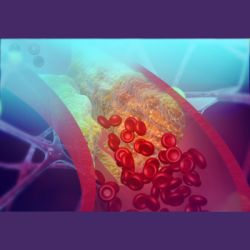Although readability is adequate, the overall quality of radiology-related healthcare information on the internet is poor, according to a new study to appear in the journal Academic Radiology. Researchers say institutions should identify high-quality online resources to help their patients avoid the use of poor-quality information derived from general search engine queries.
See Also: High Time for Shift to a Better Model of Radiology
Patients increasingly turn to the internet for healthcare information. It is estimated that as much as 4.5 percent of all queries to general internet search engines are healthcare related in origin. Evidence has also demonstrated that although patients have a high degree of trust for the information that their doctor may provide, as few as 11 percent of patients will make their doctor their first port of call for that information, with most choosing online sources first.
Dermot J. Bowden, BMBS, MRCSI, of the Department of Radiology, Galway University Hospital in Ireland and colleagues conducted this study to characterise the quality of online healthcare information as it pertains to five common radiological investigations: x-ray, computed axial tomography, magnetic resonance imaging (MRI), ultrasound, and positron emission tomography (PET). Four search engines (Google, Bing, Yahoo, and Duckduckgo) were searched using the terms “X-ray,” “cat scan,” “MRI,” “ultrasound,” and “pet scan.” The first 10 webpage results returned for each search term were recorded, and their quality and readability were analysed by two independent reviewers, with discrepancies resolved by consensus. The researchers noted that internet search engine users do not tend to look beyond the first page of results returned for a given search, hence only the first 10 results returned for each search term were included for analysis.
The researchers used validated instruments for rating the quality of information: DISCERN score is a multidomain tool for assessment of healthcare information quality by medical professionals and laypeople (max 80 points) and readability (Flesch-Kincaid and SMOG or Simple Measure of Gobbledygook scores). The search result pages were further classified into three categories: commercial, academic (educational/institutional), and news/magazine. Several organisations offer website accreditation for healthcare information, and accreditation is recognised by the presence of a hallmark or logo on the website. The presence of any valid accreditation marks on each website was recorded. Mean scores between groups were compared for significance using the Student "t" test.
A total of 200 webpages returned (108 unique website addresses). The average DISCERN score was below 50 points for all modalities and search engines. No significant difference was seen in readability between modalities or between search engines. Websites carrying validated accreditation marks were associated with higher average DISCERN scores. Academic/government institutions produced material with higher DISCERN scores, while commercial websites had lower mean DISCERN scores.
Based on the results, healthcare information found through general search engines about common radiological investigations is of generally poor quality. "Although small numbers of websites individually delivered DISCERN scores above 60 points, they were greatly outnumbered by lower quality material across all modalities and for all search engines," the authors write.
Source: Academic Radiology
Image Credit: Pixabay
References:
Bowden. Dermot J., Yap, Lee-Chien, Sheppar, Declan G. (2017) Is the Internet a Suitable Patient Resource for Information on Common Radiological Investigations? Radiology-Related Information on the Internet. Academic Radiology. doi.org/10.1016/j.acra.2017.01.012
Latest Articles
Internet, Radiology-Related Information, healthcare information, radiological investigations
Although readability is adequate, the overall quality of radiology-related healthcare information on the internet is poor, according to a new study to appear in the journal Academic Radiology.























